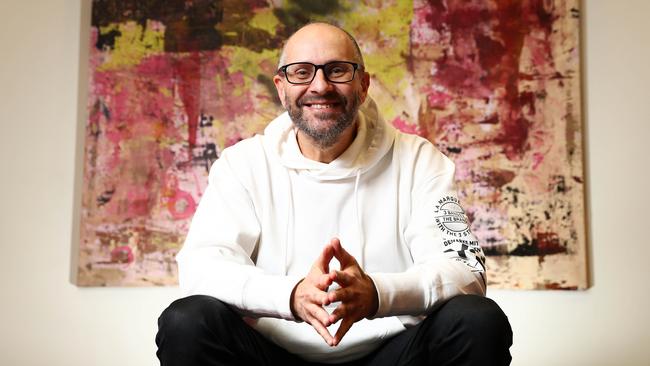Why the world’s richest families see cryptocurrency as the way of the future
A global survey of family office activity in cryptocurrency finds the very rich entering the market for a range of reasons, most commonly ‘keeping up with investment trends’.

Australia’s richest families are moving into cryptocurrency. Recently The Australian reported how the Smorgon family entered the fray while Rich List stalwarts such as Alex Waislitz have championed the alternative currency.
Now a global survey examines why the wealthiest families in the world are placing bets on “digital gold”.
In February, BNY Mellon, in conjunction with the Harris Poll, released its first-ever global family office survey findings. Some of the most interesting data suggests a previously unheard of level of interest in cryptocurrency investments. It found 42 per cent of family offices surveyed thought cryptocurrency the way of the future.
Of 200 key global family office personnel surveyed, 77 per cent said their firms were exploring or investing in crypto, with one out of five describing themselves as active investors.
“There was certainly a differentiation between the younger generation and the older generation,” says Rajesh Nakadi, head of investments for BNY Mellon Wealth Management’s global family office division. Of those surveyed, 64 per cent say cryptocurrency speaks to the aspirations of the next generation of investors, and nearly half of those already investing in crypto said these incoming leaders were strong drivers of the decision to invest.
But there are other reasons crypto is viewed with fresh enthusiasm by some in the sector.
“There is this interesting sort of hybrid of long-term focus,” Nakadi says. “Very strategic in the investment but also opportunistic. Looking for trends where they see opportunities to expand the investment landscape and invest in newer, emerging technologies.”
Of those surveyed, 25 per cent lack interest in cryptocurrency investing, but he notes other emerging tech, such as social media and Web 2.0, took time to become accepted as strategic parts of family-office portfolios.
BNY Mellon’s research sheds further light on a dimly-lit corner of family-office investing, where there’s yet to be a consensus. Research from Campden Wealth and Raffles Family Office published last November revealed only 19 per cent of Asia-Pacific family offices invested in cryptocurrency, a figure behind Europe (28 per cent) and North America (31 per cent).
In BNY Mellon’s report 61 per cent of offices surveyed indicated that a “lack of well-defined regulations” is the top challenge when investing in cryptocurrencies. Nakadi points out there are regulatory questions on how to classify crypto – should cryptocurrencies be considered assets, commodities, currencies, or stocks?
At the moment, regulatory agencies haven’t reached a consensus. The Commodity Futures Trading Commission (CFTC) classifies cryptocurrencies as a commodity, for instance, while the Internal Revenue Service (IRS) treats them as property. (The Australian Taxation Office treats cryptocurrency as a capital-gains tax asset. Separately, regulators continue to assess potential crypto Exchange Traded Funds).
Bitcoin is traded more akin to stock futures instead of like a physical commodity. “And so a lot of the ETFs are based off of the futures curve,” Nakadi says. While the SEC chair supports crypto ETFs trading futures, last week the commission rejected a spot Bitcoin ETF, continuing a trend of denying such applications.
It’s difficult to predict how long it’ll take for the regulatory landscape to resolve questions and evolve stances. Nonetheless, more than two-thirds of family offices actively investing in crypto said within 12 to24 months they planned to increase investments in the category.
Even during the pandemic, where there have been dramatic ups and downs over a range of investment categories, crypto has proven more volatile than others, reaching dramatic highs and lows. Bitcoin reached a record high of $US68,000 ($91,000) in November 2021, yet by January 2022 had plunged to below $US35,000. More recently it has inched back to near $US40,000.
This is an edited feature from Barron’s




To join the conversation, please log in. Don't have an account? Register
Join the conversation, you are commenting as Logout